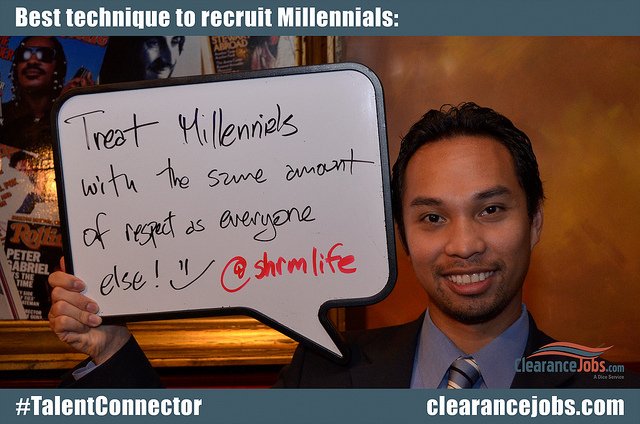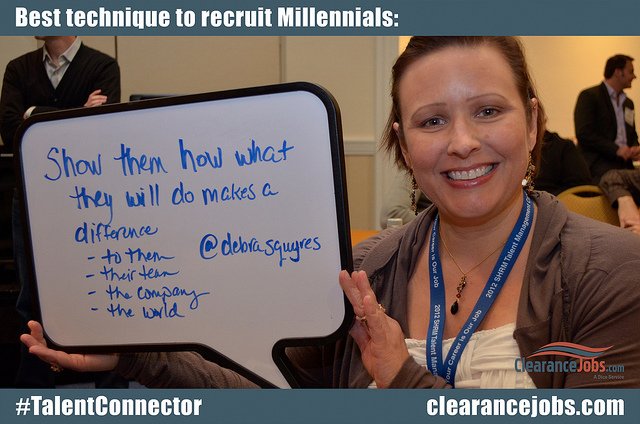There’s a new generation of parents coming to a church near you. Born between 1980 and 2000 Millennials are now coming into their own. Like every generation they tend to have a group persona, with definite characteristics. Obviously not all will share those traits and some will probably work very hard to resist them! However like it or not these traits will probably define a generation of individuals.
What has this got to do with Christian Education? Simply put, these are the people who will be coming to our youth and young adult groups; they are also becoming parents. If we are to welcome them into our congregations we need to understand what they are looking for and what is important to them.
I did a little research (the Internet is a wonderful thing) and discovered a very helpful site. Canadian Millennials is a veritable gold mine of information. I downloaded their free research paper “R U Ready 4 Us? An Introduction to Canadian Millennials.” It is fascinating and I think it should be required reading for all Bishops and church leadership!
So who are this generation and what makes them tick? Below I have listed some of the characteristics. (Unless otherwise stated all the quotes are taken from “R U Ready 4 Us?”
1. They are Connected and Tech Savvy
Consider these statistics
- 90% of Millennials have Facebook accounts
- 60% own smart phones
- 65% are disconnected from the Internet for only one hour a day or less.
Whereas the telephone and email dominate communications with older generations, Facebook is the dominant communication tool for Canadian Millennials. This is often their main source of news and information. Further Millennials use technology and media to help inform and focus their lives.
- Does your church have a Facebook page and Twitter account?
- As a congregation have you made a point of creating an online presence and community?
- Do you regularly provide links to websites that offer good quality teaching about parenting, the Christian faith, and how it intersects with everyday life?
2. They value community and are highly relational.
This is a generation that is constantly connected through Facebook, Twitter, email, and cell phones. They value relationships with family and friendship groups. They are looking for churches that will reach out to connect with them and then help them connect with one another.
3. They have deeply held concern for equity and justice
Millennials welcome diversity and have friends from wide variety of backgrounds and cultures. Perhaps more importantly they are increasingly frustrated by the perceived intolerance of many churches towards those who are Lesbian, Gay, Bi-sexual or transgendered (LGBT). In her excellent post How to Win a Culture War and Loose a Generation Rachel Held Evans explains that
” one of the top reasons 59 percent of young adults with a Christian background have left the church is because they perceive the church to be too exclusive, particularly regarding their LGBT friends. Eight million twenty-somethings have left the church, and this is one reason why.”
This is also a generation that is concerned about justice and environmental issues. Canadian Millennials think that everyone should have a decent standard of living and believe that the government can play a positive role in providing a basic level of support to people in need. Their concern for justice is also reflected in the way they shop, looking for products and services that are made with minimal harm to, or exploitation of, humans, animals, or the environment. They are looking for churches that share the same values. I find this exciting and hopeful.
4. They want to take action and make a difference
They will be looking for church communities that are involved in projects (locally and globally) that make a difference. They are looking for churches that invite them to get involved. Wow this could be really good news for churches!
5. They value community empowerment and self- determination
Millennials tend to be team oriented, consequently they do not respond well to any kind of hierarchy. They prefer to be part of a community where everyone is on an equal footing. This could be problematic for churches that have a controlling and closed leadership group. Here are some awkward questions
- Is your church (or diocese for that matter) controlled and run by a small group of people?
- Do new ideas and new people threaten your church leadership?
- Do you have focus groups and visioning meetings?
- Do you ask for input from young adults?
6. They value authenticity
The paper I was reading did not specifically address the beliefs or faith practices of this age group. Still it became obvious that this is a generation that is looking for authenticity. Consider this quote
“The challenge with marketing and selling to us is that we have instant access to information. We can find answers to questions and fact check claims far more quickly than other consumers. The moment we suspect that a brand’s claim is inauthentic, we can quickly verify the information and decide whether the brand is worthy of our business. For this reason, our generation is attracted to authentic brands – those that know who they are, are proud of who they are, and are not afraid to tell us how our values align.”
Now substitute the word church for brand. Does your church know who they are, are proud of who they are, and have values that align with this generation?
7. They emphasize relational experiences over material things.
“Jean Twenge, author of Generation Me, says the most prominent shift she has seen so far among young people in this economy is an apparent decrease in materialism.”
They put relationships before stuff, so they are not looking for fancy buildings and impressive sound systems. In fact they seem to be drawn to buildings that are “churchy,” ancient, quiet. Hey we can do that! But regardless of architecture they are looking for churches where they can connect as young families and friends.
I recently read a very interesting post by Matt Marino about PhoenixOne. On Tuesday nights throughout the year, 700-1000 young professionals aged between 20-30 gather to worship God in the heart of downtown Phoenix. How do they attract such large numbers? (The following are quoted from Matt Marino)
- They use technology – participants facebook and tweet the meeting.
- They are relational, working hard to connect with people and help them connect with one another.
- They meet in a 100 year-old church-ancient by Phoenix’ standards. It is quiet. Solid. It feels stable – like a church.
- They bring in communicators who speak to their experience and emphasize high content/good presentation over low content/great presentation
- They use technology, and experiment with ancient liturgical forms. Chant, candles, confession, contemplation are merged with slick graphics. Young adults are rediscovering mystery, symbol and narrative…
- They get people to work in the world for good. Young adults actually do want to do things-just not like we do them. We want to make church like the world and work in our churches to avoid the world. They want to make church churchier and then work to take Jesus into the world.
- They work to work together through difference rather than ignore difference.
YES!
It seems to me that the Anglican Church of Canada has a huge opportunity here. There is a whole generation of people searching for church communities who are willing to do what it takes to invite them in. It may mean huge changes in the way we do things, but we actually have the chance to be the church for this exciting new generation. Or we could simply sit back in our pews and write them off as materialistic, coddled, lazy, and entitled. What will you do?
“Are you noticing the relationship between the cultural realities of 25 year olds and how effectively reaching them includes both connecting them to one another and the world, and artfully adapting classic Christian worship practices and disciplines to connect them with God?” Matt Marino






By Matt Marino September 27, 2013 - 10:08 am
Hi Sharon,
Thank you for linking to my post on Phx1. It is a great organization. One which has a decent representation of Episcopalians…and Catholics to go with the evangelicals. When you talk to attendees their favorite gatherings are ones that were heavier on liturgy.
I would like to suggest an alternate spelling to my name though: Marino. 🙂
By Sharon Harding September 27, 2013 - 10:29 am
Yeek so sorry about the spelling mistake! I’ve made the corrections 🙂 Your post on Phx1 was really encouraging to me. I think we Canadian Anglicans have a wonderful opportunity to reach out to this younger generation, if we are willing to meet them where they are.
By gacb September 27, 2013 - 2:23 pm
We need our websites to look as good on tablets and smartphones as they do on desktops and laptops or we risk losing visitors, which can translate into parishioners.
By Sharon Harding September 29, 2013 - 9:14 am
For sure… I think smart churches will be getting some of those tech savvy young adults to run their websites, ‘cos many of us older folk don’t know how to make websites look good on smart phones 🙂
By Tony Houghton September 28, 2013 - 2:08 pm
We have to be careful not just to use “gimmicks” to bring people into the church.We have to get back to what we were called to do from the beginning “Preach the word; be instant in season, out of season; reprove, rebuke, exhort with all longsuffering and doctrine. For the time will come when they will not endure sound doctrine; but after their own lusts shall they heap to themselves teachers, having itching ears” We have a risk of telling people what they want to hear just to get them into and keep them in the church instead of telling them what they have to hear for salvation and right living before the face of God.If we use “gimmicks ” to lure people into the church we will have to change it every generation to keep it “new” but alienating those who have been in the church for generations.But ultimately it is not what we do that changes peoples hearts but God who opens their hearts to receive his truth.God brings them into the church.
By Sharon Harding September 29, 2013 - 9:34 am
Firstly Facebook and Twitter are not gimmicks they are communication tools. They are this generation’s telephone. To write them off as gimmicks is very short sighted. Secondly if God is the one who brings people into church, then God hasn’t been doing a very good job. According the statistics on the Anglican church of Canada website in 1970 there were 1,126,570 people on our parish rolls. In 2007 the numbers were down to 545, 957. That is a massive decline. I would imagine that the numbers would be even lower today, because those people who have been in the church for generations are getting old. Jesus made it clear that we were to go into all the world. We Anglicans have seriously bungled evangelism. I find it very encouraging that a new generation has emerged that is looking for churches with good content, values liturgy, wants a faith that is real, and upholds Jesus’ values of justice and welcome to all. We have an opportunity to invite this new generation into our churches and turn this decline right around, but we have to understand their world and embrace their way of communication.
By Tony Houghton September 30, 2013 - 2:30 pm
I agree with you that we have done a very poor job in proclaiming the gospel. We have by and large replaced the true gospel with a social gospel which has no power to save just gives people a warm fuzzy feeling. We need to go back and review what some great preachers sermon content was . Preachers like Spurgeon, Owen, Edwards, Westley, Whitefield,etc. Putting bums in seats is easy but making disciples requires more effort on our part and I am not saying not to use social media to mentor these people .